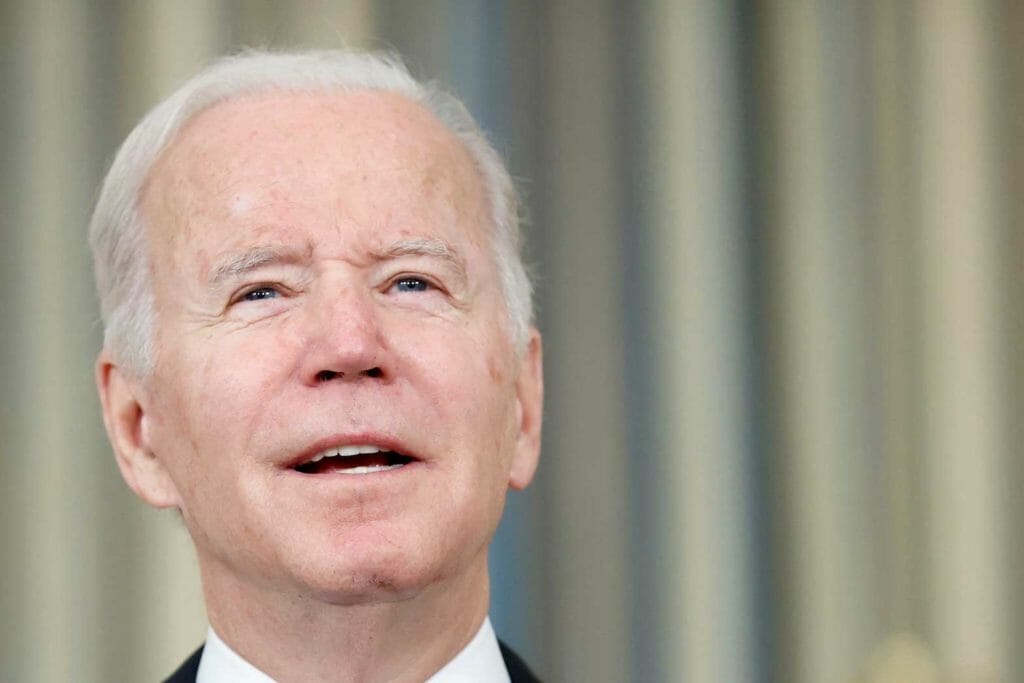Biden ‘Summit for Democracy’ seeks to rally nations against rising authoritarianism

U.S. President Joe Biden on Thursday addressed a global “Summit for Democracy” saying that data show trends on global measures of freedom “is largely pointing in the wrong direction.” REUTERS
WASHINGTON – U.S. President Joe Biden gathered more than 100 world leaders on Tuesday in a virtual “Summit for Democracy” intended to counter authoritarianism – and with Russia and China pointedly uninvited.
In an opening speech, Biden said global freedom was under threat from autocrats seeking to expand power, export influence and justify repression.
“Democracy doesn’t happen by accident. And we have to renew it with each generation,” he said. “In my view, this is the defining challenge of our time.”
The president did not address any countries by name, but authoritarian powers China and Russia were notably absent from the guest list.
After the United States’ global standing took a beating under predecessor Donald Trump, Biden has pledged to return the United States to world leadership to face down the likes of Beijing and Moscow.
American officials have promised a year of action will follow the two-day gathering of 111 world leaders, but preparations have been overshadowed by questions over some invitees’ democratic credentials.
The White House said it was working with Congress to provide $424.4 million toward a new initiative to bolster democracy around the world, including support to independent news media.
This week’s event coincides with questions about the strength of American democracy. The Democratic president is struggling to pass his agenda through a polarized Congress and after Republican Trump disputed the 2020 election result, leading to an assault on the U.S. Capitol, the legislative seat, by his supporters on Jan. 6.
An invitation list published last month included countries whose leaders are accused by human rights groups of harboring authoritarian tendencies, like the Philippines, Poland and Brazil.
It also included Taiwan, prompting anger from China, which considers the democratically governed island part of its territory.
A Chinese foreign ministry spokesperson said the invitation of Taiwan showed the United States was only using democracy as “cover and a tool for it to advance its geopolitical objectives, oppress other countries, divide the world and serve its own interests.”
‘LIP SERVICE’
Washington has used the run-up to the summit to announce sanctions against officials in Iran, Syria and Uganda it accuses of oppressing their populations, and against people it accused of being tied to corruption and criminal gangs in Kosovo and Central America.
U.S. officials hope to win support during the meetings for global initiatives such as use of technology to enhance privacy or circumvent censorship and for countries to make specific public commitments to improve their democracies before an in-person summit planned for late 2022.
Annie Boyajian, director of advocacy at nonprofit Freedom House, said the event had the potential to push struggling democracies to do better and to spur coordination between democratic governments.
“But, a full assessment won’t be possible until we know what commitments there are and how they are implemented in the year ahead,” Boyajian said.
The State Department’s top official for civilian security, democracy and human rights, Uzra Zeya said civil society would help hold the countries, including the United States, accountable. Zeya declined to say whether Washington would disinvite leaders who do not fulfill their pledges.
Human Rights Watch’s Washington director Sarah Holewinski said making the invitation to the 2022 summit dependent on delivering on commitments was the only way to get nations to step up.
Otherwise, Holewinski said, some “will only pay lip service to human rights and make commitments they never intend to keep.”
“They shouldn’t get invited back,” she said.

